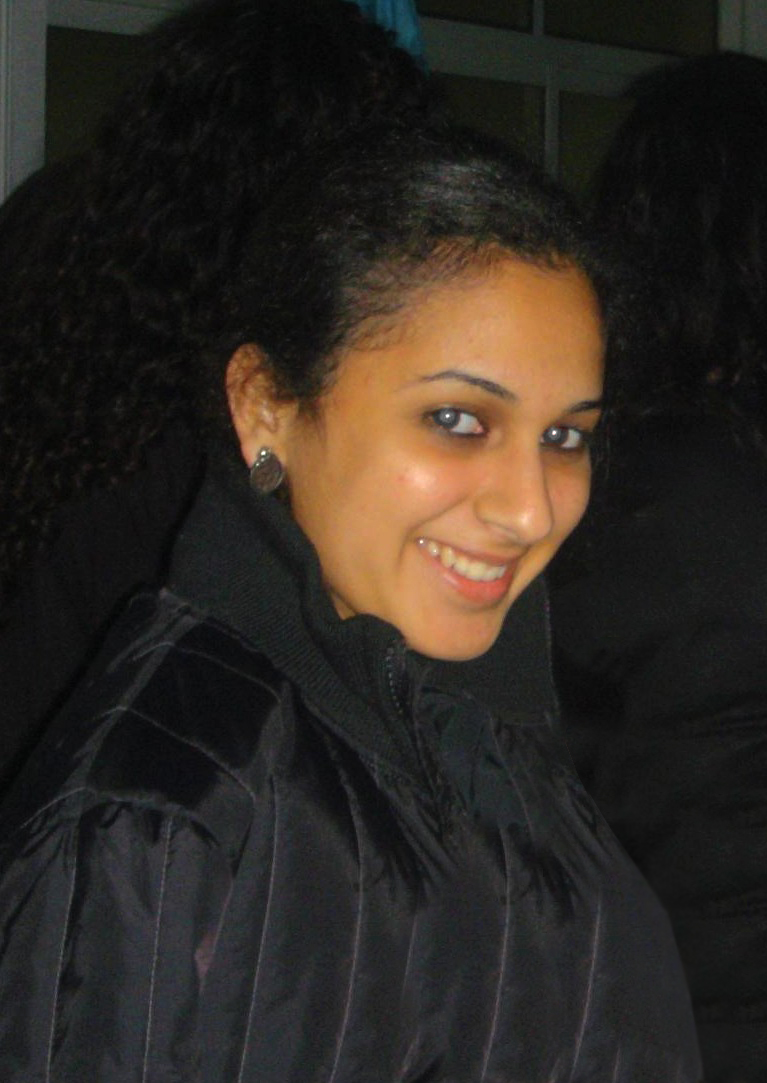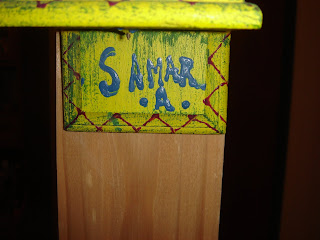Objective: Discuss Golding’s purpose and the ways in which it is achieved.
We are all beasts deep down. It sounds awful doesn’t it? What’s awful is that it’s true. In Lord of the Flies, William Golding addresses the theme that every man has a beast within that is tamed by society. As a result, when society is diminished, man’s beast is set free, and his savagery emerges. In the novel, the boys started off things in a civilized manner, but as the plot progressed and order and civilization began to lose their importance, the boys became savage. Authors use writing as a median to express their thoughts/opinions, or to fulfill a certain goal; all authors have purposes. Golding’s purpose was to convey his timeless and universal theme. Lord of the Flies was written shortly after World War II, a period directly after a time in which in inhumanity and darkness of man’s heart was at its peak. Golding used this novel to send a message, the message being the theme of the novel. Golding’s timeless theme is conveyed through the absence of referral to time, type of characters in the novel, use of symbols, and through author’s style.
Throughout the novel, there was no concrete reference to time. Some could argue that there were some references to time such as hair length and day/night, but these were subtle references used to advance and develop plot; “Toward noon, as the floods of light fell more nearly to the perpendicular, the stark colors of the morning were smoothed in pearl and opalescence” (58). This reference to time (noon), was used to create an image and introduce the plot of the chapter. Golding didn’t include references to time, because his theme was timeless and universal. He wanted people all over the world regardless of what time period to be able to familiarize with his theme. It is known to the leader that there was a war being fought in the ‘real’ world, but again, there was no reference to which war was being fought, “Didn’t you hear what the pilot said? About the atom bomb? They’re all dead” (14). Golding also refrained from mentioning material things such as books or toys, because as times change, so do peoples’ tastes and preferences. Golding had an important message that he wanted to deliver, so he did purposely did not include any references to time in order for his message to be timeless and universal.
Golding used various types of characters in his novel such as archetypal, real, and symbolic characters in order to achieve his purpose. All his characters appeared in such a way that the reader could familiarize with them. The reader could compare the real characters to people they know, or they could recognize the ideal that the symbolic/ archetypal characters embodied. If the reader recognized the characters, then it would make understanding the theme much easier. In the novel, Ralph served as the real character; he was the fallible young man that everyone could identify with: “Ralph too was fighting to get near, to get a handful of that brown, vulnerable flesh. The desire to squeeze and hurt was over-mastering”(115). Ralph was not perfect, he had his moment of weakness; he was flawed, like the rest of the world. His savagery emerged at a point in the novel, emphasizing Golding’s theme of the beast within. The characters also work on a symbolic level because Golding wanted to include ideals, or perfect examples of things in the society he created, so he personified them. Simon was the archetypal character of kind heartedness, “Simon, sitting between the twins and Piggy, wiped his mouth and shoved his piece of meat over the rocks to Piggy” (74). Simon was the perfect example of the kind hearted man, a Christ figure, included in the novel as a personification of kindness. His similarity with Christ also added spirituality to the society. Roger on the other hand was the foil character to Simon, he was the archetype of a sadist, “Roger led the way straight through the castles, kicking them over, burying the flowers, scattering the chosen stones” (60). Roger was the perfect example of man who’s beast has been set free with the absence of order and society, “Roger stopped, picked up a stone, aimed, and threw it at Henry-threw it to miss” (62). When Roger realized that no adults were present, his beast began to emerge, and as the story progressed and order began to diminish, Roger became more and more evil. When he killed Piggy, his beast was fully exposed. As for allegorical figures, Piggy was the allegory of logic, and he represented the adult voice in society, “Like kids!’ he said scornfully. ‘Acting like a crowd of kids!”(30).
Piggy was the voice of reason in their society, he tamed the beast within the boys to a degree, especially Ralph’s beast. Jack was the allegory of anarchy in the novel, his anarchy led for his beast to emerge as well as others’ beasts. Jack’s anarchy was first evident in the first argument between him and Ralph over shelter vs. meat/needs vs. wants, “We needed meat,”(71). The characters’ dual functions, symbolic and real, were an effective way of achieving purpose.
Another method of conveying his theme, was through Golding’s use of symbols. His own theme is symbolic, the beast within, meaning the evil within man’s heart. He used symbols to include the ideals essential to conveying his theme. The fire was symbolic of order and civilization, and as the fire began to lose its importance, civilization began to diminish, releasing the beasts within the boys. “The fire’s the most important thing. Without the fire we can’t be rescued. I’d like to put on war-paint and be a savage. But we must keep the fire burning” (142). In this quote Ralph conveys the theme; if the fire runs out, they will become savage. The fire represents civilization and if that is diminished, the evil within man will emerge, and he will become savage. As for the conch, it represented law and order, “That’s what the shell is called. I’ll give the conch to the next person to speak. He can hold it when he’s speaking” (33). The conch started losing its importance and anarchy began to emerge, “Conch! Conch!’ shouted Jack. ‘We don’t need the conch anymore”(101-102). When people like Jack began to neglect the conch, their savagery emerged. The Lord of the Flies symbolized the inner devil, “You know perfectly well you’ll only meet me down there- so don’t try to escape” (143). Simon’s conversation with the Lord of the Flies displayed the theme fully; only after their conversation is the reader fully aware of the beast’s identity. “You knew, didn’t you? I’m part of you? Close, close, close! I’m the reason why it’s no go? Why things are what they are?”(143). Finally, the beast symbolized the darkness within man’s heart, “However Simon thought of the beast, there rose before his inward sight the picture of a human at once, heroic and sick”(103). Simon was the only one aware of the beast’s true identity, the others were unaware of the beast’s identity, which then led to problems between the boys. Jack for example used the beast to manipulate the boys, and for a source of power. People began to go to Jack for protection, which led to crumbling of the original group. It’s ironic how people went to Jack for security because he offered protection from the beast, and the beast being the darkness of man’s heart is no longer tamed in Jack.
Golding uses mood, tone, and diction to convey his theme as well. The diction used in the novel was very simple and easy to understand, because Golding had an important message he wanted to spread and thought that through simplicity, it would be the most understandable. “I’m frightened of us. I want to go home. Oh God, I want to go home” (157). The simplicity of the diction in the quote created a better understanding of the theme to the reader. As for Golding’s tone, it was pessimistic. He was not very critical of man, but man was certainly displayed in a negative manner, “Ralph wept for the end of innocence, the darkness of man’s heart, and the fall through the air of a true wise friend called Piggy” (202). Golding knew that man will not repent, therefore his pessimism was obvious through the novel. His pessimism enables you to regard the theme with a high level of importance, because you realize how horrible man can be. Finally, the mood was very sorrowful. At the end of the novel, the reader feels overwhelmed by his newly acquired knowledge on the nature of man, and is left filled with sorrow. This sorrowful mood enables the reader to fully understand the importance of the theme of the novel. The reader realizes how evil man is, and is left disturbed while digesting this heavy theme.
Golding managed to achieve his purpose effectively, for the reader is left significantly affected by the theme. The timeless theme of the novel was successfully delivered to the reader through the absence of reference to time, character types, various symbols used, and the author’s style. The best confirmation to the success of the timeless theme is that more than fifty years after the novel was published, students still continue to study it in schools all around the world. Through character types, symbols, and author’s style, the reader comes to a full understanding of the theme, and is left disappointed and sorrowful over the darkness of man’s heart.
Samar Al-Ansari 11.5
Oct. 19, ‘04

 In loving memory of Samar Al Ansari: a loving daughter, wonderful sister, and great friend.
In loving memory of Samar Al Ansari: a loving daughter, wonderful sister, and great friend.






.jpg)








